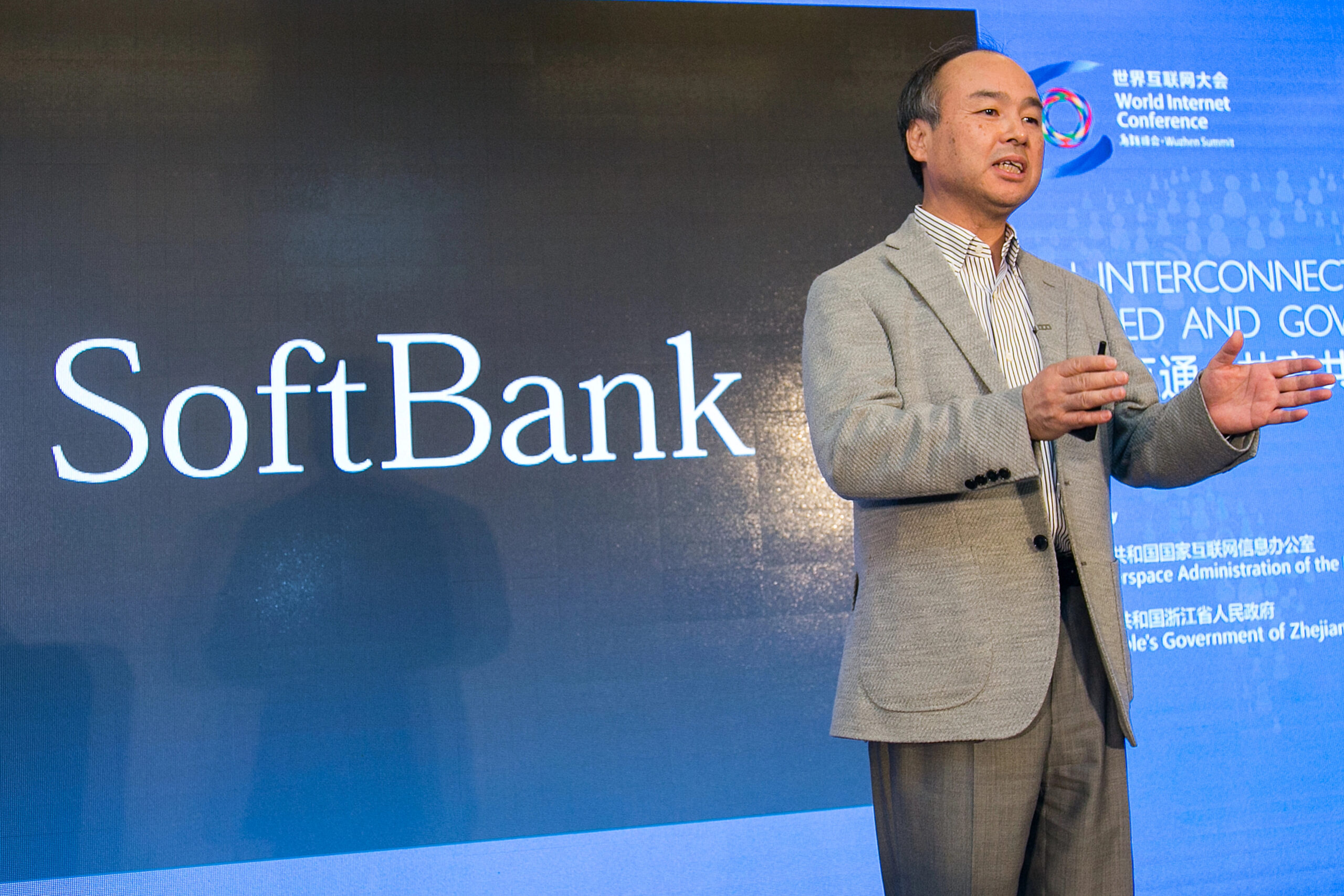Technology professionals must follow the semiconductor industry and be aware of the intensifying competition to design faster, more powerful AI chips. One ambitious newcomer, SoftBank, aims to shake up the status quo through its Project Izanagi, a $100 billion venture into AI chip development. This enormous investment represents a strategic pivot for SoftBank towards the crucial semiconductor sphere, essential for the expanding AI needs of cloud computing, autonomous vehicles, and data centers. With AI’s potential still largely untapped, the winners of this high-stakes chip race stand to shape the future infrastructure of AI itself.
SoftBank’s Ambitious Foray into AI Chips
With Project Izanagi, SoftBank is venturing into the semiconductor industry with a staggering $100 billion investment. This audacious initiative aims to develop cutting-edge AI chips that can compete with industry giants like Nvidia.
AI Chips: The Future of Computing
- AI chips, also known as accelerators or tensor processing units (TPUs), are specialized processors designed to handle the complex computations required for artificial intelligence applications. These chips excel at tasks such as machine learning, deep learning, and neural network processing, offering significant performance improvements over traditional CPUs and GPUs.
SoftBank’s Bold Strategy
- SoftBank’s foray into AI chips represents a strategic shift for the company, which has traditionally focused on telecommunications and investment activities. By entering the semiconductor market, SoftBank aims to position itself at the forefront of the AI revolution, capitalizing on the growing demand for advanced computing capabilities across various industries.
Competing with Industry Giants
- While Nvidia currently dominates the AI chip market, SoftBank’s ambitious investment signals its intent to challenge the status quo. By developing its own AI chips, SoftBank aims to offer competitive alternatives and potentially disrupt the existing market dynamics. This move could foster innovation and drive down costs, ultimately benefiting consumers and businesses alike.
Potential Applications and Impact
- AI chips have far-reaching applications across sectors such as cloud computing, autonomous vehicles, data centers, and more. With its massive investment, SoftBank could potentially accelerate the development and adoption of AI technologies, enabling breakthroughs in areas like machine learning, computer vision, and natural language processing.
As SoftBank navigates this new terrain, industry experts and tech enthusiasts alike will be watching closely to see how this ambitious project unfolds and how it might shape the future of AI computing.
Project Izanagi: Aiming to Disrupt the AI Chip Industry
As one of the most ambitious semiconductor initiatives in recent years, Project Izanagi represents SoftBank’s bold $100 billion foray into AI chip development. This groundbreaking venture aims to challenge industry giants like Nvidia and reshape the future of artificial intelligence computing.
Challenging the Status Quo
- For years, Nvidia has dominated the AI chip market, powering cutting-edge applications across various industries. However, SoftBank’s Izanagi project seeks to disrupt this status quo by developing advanced chips tailored explicitly for AI workloads. By leveraging its vast resources and expertise, SoftBank intends to introduce a formidable competitor to Nvidia’s offerings.
Fueling Innovation Across Industries
- The success of Project Izanagi could catalyze innovation across numerous sectors, from cloud computing and data centers to autonomous vehicles and robotics. AI chips are the backbone of modern computing, enabling faster processing, increased efficiency, and more sophisticated algorithms. With its ambitious goals, Izanagi could accelerate the development of groundbreaking AI applications, driving progress in fields as diverse as healthcare, finance, and scientific research.
Strategic Shift Towards Semiconductors
- Project Izanagi represents a strategic shift for SoftBank, a company primarily known for its investments in technology startups and telecommunications. By venturing into the semiconductor industry, SoftBank is positioning itself at the forefront of one of the most critical technological revolutions of our time. The potential rewards are immense, but the challenges are equally formidable, as SoftBank must navigate a highly competitive and capital-intensive landscape.
Fostering Collaboration and Innovation
- To achieve its ambitious goals, SoftBank has assembled a team of top engineers and researchers, leveraging its global network and partnerships. Collaboration with leading academic institutions and industry players is likely to be a key component of Izanagi’s success, fostering an environment of innovation and knowledge sharing. As the project progresses, the world will be watching closely to see if SoftBank can disrupt the AI chip industry and shape the future of computing.
Challenging Nvidia’s Dominance with a $100 Billion Investment

Massive Investment for AI Dominance
- The staggering $100 billion investment represents a bold move to challenge Nvidia’s stronghold in the AI chip market. This ambitious venture underscores SoftBank’s strategic shift towards semiconductor technology. As it is crucial for powering AI applications across cloud computing, autonomous vehicles, and data centers.
Disrupting an Entrenched Leader
- Nvidia has long dominated the AI chip landscape. Leveraging its powerful graphics processing units (GPUs) to accelerate machine learning and deep learning workloads. However, SoftBank’s colossal investment aims to develop custom AI chips. These chips could potentially outperform Nvidia’s offerings in terms of performance, energy efficiency, and cost-effectiveness.
Vertical Integration and Ecosystem Building
- Project Izanagi’s ambitious goals extend beyond chip design. SoftBank envisions building an entire ecosystem encompassing chip fabrication, software development, and systems integration. Integration of the AI chip supply chain gains a competitive edge, and establishes a formidable position in the rapidly evolving AI landscape.
Fostering Innovation and Collaboration
- To succeed in this audacious endeavor, SoftBank is actively seeking partnerships and collaborations. Particularly with leading chipmakers, research institutions, and technology companies. This collaborative approach could potentially accelerate innovation, leverage diverse expertise, and create a vibrant ecosystem. In turn, it challenges Nvidia’s dominance from multiple fronts.
Potential Challenges and Risks
- While the sheer scale of SoftBank’s investment is impressive, executing such a complex and resource-intensive project presents significant challenges. Navigating the intricate world of semiconductor design and manufacturing is no easy feat. On top of that, attracting top talent, overcoming potential supply chain disruptions are just a few hurdles that SoftBank may face.
The AI Chip Race Intensifies
- As AI technologies continue to reshape industries and drive digital transformation, the race for AI chip supremacy is intensifying. SoftBank’s bold $100 billion investment in Project Izanagi signals a new era of competition. Established players like Nvidia face formidable challengers vying for a slice of this lucrative and strategic market.
The Strategic Importance of AI Chips for Future Technologies
The rise of artificial intelligence (AI) and machine learning has ushered in a new era of computing. At the heart of this revolution lie specialized AI chips. These are processors designed to accelerate the complex mathematical operations required for AI workloads. These chips are poised to become a strategic asset, fueling groundbreaking advancements across industries.
Powering the AI Revolution
- AI chips are the driving force behind the rapid growth of AI applications. Their parallel processing capabilities and optimized architectures enable them to crunch through vast amounts of data. While also training machine learning models at unprecedented speeds. From natural language processing and computer vision to autonomous systems and predictive analytics, AI chips are unlocking new frontiers of innovation.
Enabling Intelligent Edge Computing
- Beyond cloud data centers, AI chips are also paving the way for intelligent edge computing. Embedded in devices like smartphones, drones, and Internet of Things (IoT) sensors, these chips enable real-time processing and decision-making at the edge. Thus, minimizing latency and enhancing privacy. This decentralized approach is crucial for applications that require instant responses, such as autonomous vehicles and industrial automation.
Accelerating Scientific Breakthroughs
- The computational power of AI chips extends far beyond commercial applications. They are instrumental in accelerating scientific research, from simulating complex physical systems to analyzing massive datasets in fields like genomics and particle physics. With their ability to process vast amounts of data efficiently, AI chips are empowering researchers to tackle previously intractable problems, driving groundbreaking discoveries.
Fueling Innovation and Competition
- As the demand for AI capabilities skyrockets, the race to develop cutting-edge AI chips has intensified. Tech giants and startups alike are investing heavily in this space, fostering a climate of innovation and competition. This competitive landscape promises to yield increasingly powerful and energy-efficient AI chips, further democratizing access to AI capabilities and driving widespread adoption across sectors.
With their transformative potential, AI chips have emerged as a strategic asset for companies and nations seeking to gain a competitive edge in the AI-driven future. Those who master this technology will be well-positioned to lead the way in unleashing the full potential of artificial intelligence.
SoftBank’s Pivot Towards Semiconductors – What It Means
A Bold Foray Into New Territory
- SoftBank’s $100 billion Project Izanagi also represents a seismic shift for the Japanese conglomerate. Traditionally a telecommunications and investment behemoth, it is now pivoting aggressively into the semiconductor arena. This strategic realignment signals SoftBank’s ambition to carve out a commanding foothold in the AI chip market, dominated by the likes of Nvidia and AMD.
Challenging the Incumbents
- Project Izanagi aims to disrupt the status quo by developing cutting-edge AI chips tailored for cloud computing, autonomous vehicles, and data centers. SoftBank’s deep pockets and penchant for bold, ambitious ventures position it as a formidable contender. However, the semiconductor landscape is fiercely competitive, and unseating established titans like Nvidia will be no easy feat.
The AI Revolution’s Driving Force
- AI’s exponential growth has fueled an insatiable demand for specialized chips capable of handling colossal computational workloads. SoftBank also recognizes this opportunity and seeks to establish itself as a pivotal player in the AI revolution. By investing heavily in semiconductor R&D, the company hopes to unlock new revenue streams and cement its position as a tech industry juggernaut.
Vertical Integration Aspirations
- SoftBank’s semiconductor ambitions extend beyond mere chip design and manufacturing. The company envisions a vertically integrated ecosystem, encompassing hardware, software, and cloud services tailored for AI applications. Thus, this holistic approach could grant SoftBank a competitive edge, enabling it to offer turnkey solutions that streamline AI adoption across industries.
The Risks and Rewards
- While the potential rewards are tantalizing, SoftBank’s semiconductor gambit is fraught with risks. The capital-intensive nature of semiconductor manufacturing, coupled with the need to attract top engineering talent, presents formidable challenges. However, if successful, SoftBank could redefine itself as a Silicon Valley disruptor, shaking up the established order and unlocking new realms of growth and innovation.
Summing It Up
Looking ahead, if Project Izanagi succeeds in its mission to build a new AI chip that leapfrogs the competition, it could enable breakthroughs in AI capabilities across industries. With the project still in its early stages, it remains to be seen whether SoftBank’s gamble on developing its own custom silicon pays off. Regardless of the outcome, Izanagi represents SoftBank’s conviction that whoever masters the AI chip space will shape the future landscape of artificial intelligence. You must continue monitoring this ambitious initiative as details emerge to fully grasp its long-term implications. The project’s success or failure will provide valuable insight into the intersections of business strategy, emerging technologies, and global competition in the 21st century.
More Stories
Apple Unlocks Its AI: Developers Get a Passport to On‑Device Intelligence
At WWDC 2025, Apple has unveiled a transformative shift in its approach to artificial intelligence, offering developers unprecedented access to its on-device AI models through the innovative Apple Intelligence framework.
Microsoft Elevates AI Shopping with Safety-First Model Rankings
With the introduction of a safety-first metric to its Azure Foundry model leaderboard, Microsoft empowers cloud customers to make more informed decisions.
Nokia Powers Next-Gen PON and Wi-Fi 7 Evolution
With the introduction of their co-existence network solution, advanced Wi-Fi 7 gateways, and a high-density 25G PON line card, Nokia empowers operators to meet the increasing demand for robust, high-capacity networks.
Perplexity Labs: Transforming Prompts into Dynamic Reports and Dashboards
As a professional in today’s fast-changing digital world, you need tools that go beyond traditional limitations. That’s where Perplexity Labs comes in—an innovative feature from Perplexity AI, available only to Pro subscribers. It turns your creative prompts into detailed reports, interactive dashboards, spreadsheets, and even full web applications.
Instagram Edits Empowers Creators with Pro-Level Mobile Video Tools
Instagram unveiled Edits, their groundbreaking mobile video editing app designed to elevate the quality of Reels and short-form videos to empower creators.
Samsung’s AI Power Play: Perplexity Partnership Signals Shift from Google
Samsung is poised to redefine AI in its Galaxy smartphones through a bold strategic move. It has partnered with Perplexity AI, an innovative U.S.-based startup. This signals a possible shift away from Google’s AI ecosystem. As a result, Samsung may integrate Perplexity’s advanced assistant into its devices.


